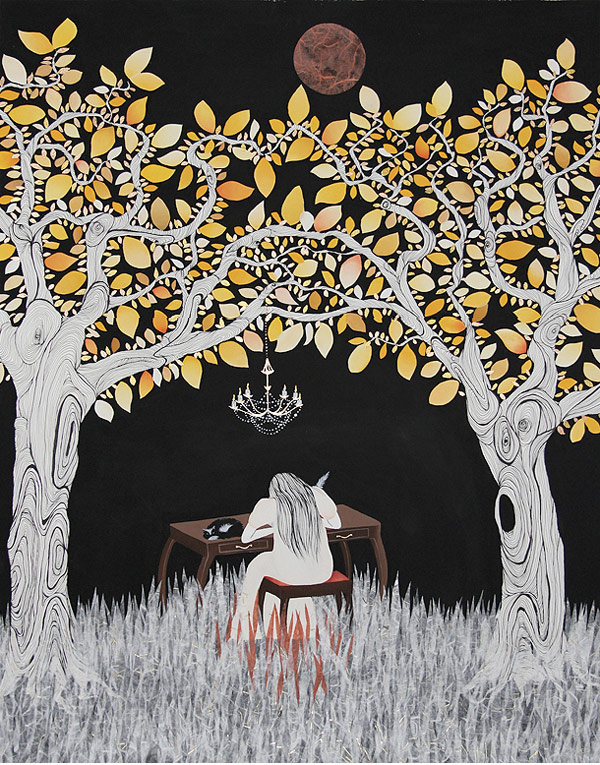All these
years, and you would not play it for me.
Sometimes,
you would reach for it,
rest it
across your thighs, and strum, haphazardly,
a few incomplete
chords.
Why won’t
you play? I wondered, afraid to ask,
but wishing
for it as much as I longed to hear
you speak in
your mother tongue.
(You were
washing the dishes,
and looking out
the window-
Say
something for me?
And, gently,
you spoke words
that swooped
lazily across the sky
caught low
in my backyard.
I asked what
you had said,
and you told
me you had made a poem
about the
playful sweep of a brown bird
from walnut
tree to roof.)
One time,
you plucked carefully,
with the
gentlest of moth feet,
and you sang
a lullaby.
But, oh! so
quickly, it was over,
and all that
was left behind
was
uncertainty,
the way that
you can hear a windchime
in the
distance, and stop, in silence,
to wait,
unsure, for the sound to repeat itself.
I don’t know
why you decided,
after so
long,
to lift the
timber torso onto your lap
and start to
play,
with your
big, calloused hands-
the
big-knuckled, square hands of a
hardworking
man.
Your square
fingertips fumbled the strings
and you bent
your silver-fox head forward
and started
to whistle- breathily-
the tune of
a sad and haunting song.
And then you
started to sing.
And then it
was one song after the other,
and, soon, I
sang along with you,
and, after
all these years, it was a communion,
it was the
blameless coming together
we had never
expected to have.
I didn’t
want it to stop.
It was like
when you find a white wallaby
grazing in
your backyard by the sea, on an island,
in the dark,
and you stand, frozen,
your bare
feet on buffalo grass already icy with
frost,
and you hold
your breath,
not wanting
to startle the creature-
alert, and
white as a bowl of milk in the night,
and poised,
ready to halt, to look in your direction
and spring
away, barely ruffling the leaf litter
underneath…
like one of
those fleeting things
that you
know may never happen again,
but that
remain in your memory,
glowing and
milk-white.






